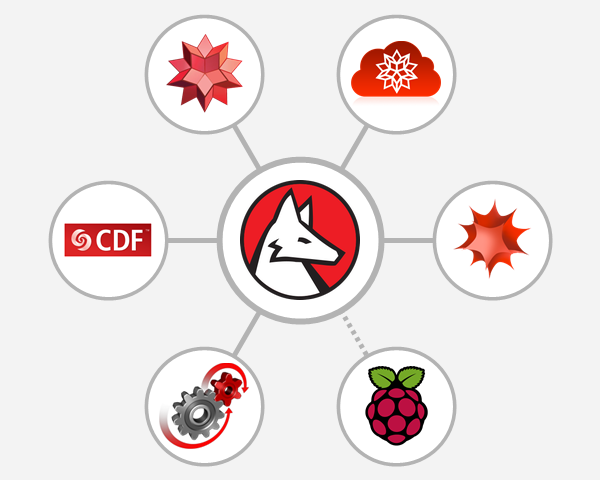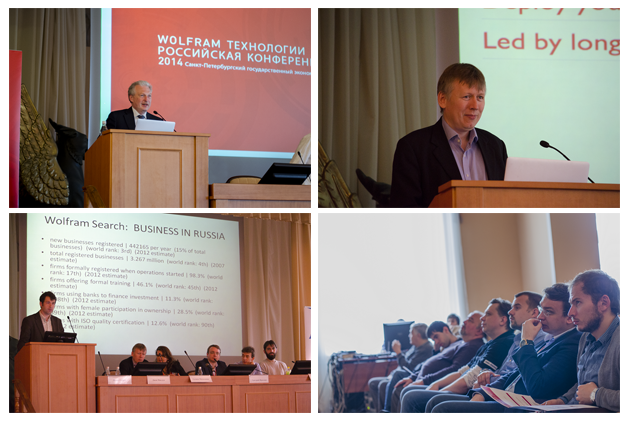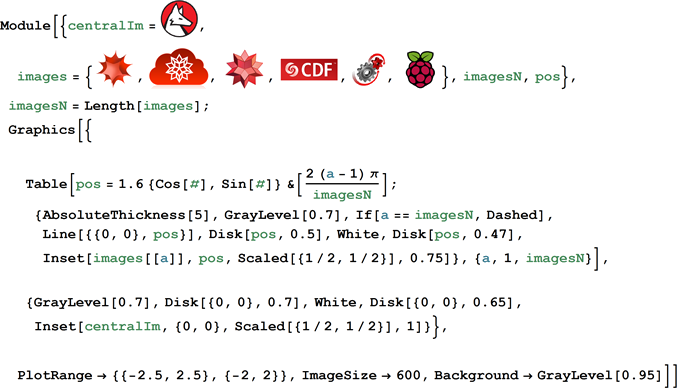The second Russian conference "Wolfram Technologies": story and materials

On June 3, 2014, the second in a row Russian Wolfram technology conference took place in St. Petersburg State University of Economics ( SPbHEU ), in which I was lucky to participate as one of the speakers.
By the way, the first conference was held in the same year a year earlier, on June 13, 2013, and it was personally opened by Stephen Wolfram himself, the CEO of Wolfram Research (you can find speeches and presentations of that conference here ). The first conference was a landmark event, it was visited by many people and for more than 3 hours, the conference participants did not let go of Stephen, asking him more and more new questions concerning Wolfram | Alpha , the fundamental foundations of Mathematica , and the topics Stephen Wolfram engaged in a very long time - cellular automata .
')
I think it’s no secret that the company will soon release the 10th version of the Mathematica system, which, in my deepest sense, will become, if not the most, one of the most powerful leaps of the Mathematica . Now, when I write these lines, the system code is already frozen and release preparation is underway. The language of Wolfram, which is also the language of all Wolfram products, was already discussed at Habrahabr, say in Russian for Stephen’s speech at SXSW 2014 , and a large proportion of the conference was also devoted to this language. I think it will be interesting to many also that the " Win Mathematica 10 " competition has just started, the winner of which will receive the 10th version immediately after the release.
In the picture at the beginning of this note (see Appendix 1 at the end) you can see the Wolfram products that were discussed on it. This, in fact, Wolfram Language , its main carriers are Mathematica 10, Wolfram Cloud and Wolfram | Alpha, as well as a number of other products, such as CDF , SystemModeler and Raspberry Pi. The link to Raspberry is dotted out because it is certainly not a Wolfram product, but since November 2013, the Wolfram and Mathematica languages are pre-installed on these single-board computers, and this is free.

The conference was opened by the rector of SPbGEU, Igor Anatolyevich Maksimtsev. By the way, now SPbGUU has become the largest university in Russia in terms of the number of students and is the first and only university in Russia at the moment that has acquired an unlimited license that allows all students and teachers on all computers of the university and at home to use the licensed Mathematica . Therefore, including, Saint-Petersburg State University of Economics became the site of the first two Russian conferences of Wolfram.
After the introductory remarks of the rector, Jon McLoone, who is the director of the international business and strategic development department at Wolfram Research, began his report “The Future Directions of Wolfram Technology Development”. He is also well known as a popularizer of Mathematica , his posts are very popular, among them, say, " How to win in Stone-Scissors-Paper ", " Comparison of code length 14 common programming languages ", " Creating an application for microscopy in Mathematica " and many others .
In his report, John shows very unusual features of Mathematica 10, such as new features for working with FEM, a new geometric language, functions for working with Machine learning, etc. Unfortunately, this video is not translated.
Download John McLune Presentation
After John’s speech, there was a round table of experts “Innovations in Entrepreneurship: New Opportunities and Challenges”, moderated by Igor Yegorov - Director of the CFE Center for Entrepreneurship in St. Petersburg. During the round table, interesting issues were discussed, such as: competitive advantages that Wolfram technology gives young professionals, the importance of programming for the modern person, business development using Wolfram products, etc.
After about an hour’s break, the conference was continued by Grigory Friedman, Head of the Department of Economic Cybernetics and Economic and Mathematical Methods at St. Petersburg State University of Economics. Grigory talked about how SPbGEU uses Mathematica in the educational process, some interesting projects, and also about the Wolfram technology training center at SPbGEU, which from September 2014 will continue to hold free programming workshops in Mathematica for everyone.
Very important issues related to the development of large applications in Mathematica were considered in his report “Aspects of professional development of large-scale applications in Wolfram Mathematica ” Leonid Shifrin, the developer of the core of the Wolfram Mathematica system. From his presentation, you can learn about package creation, general aspects of developing large applications, specific techniques and Mathematica abstraction for modular programming, standard practices, using integrated development environments ( Wolfram Workbench , IntelliJ IDEA) and version control systems (CVS, SVN, Git) .
Download the presentation of Leonid Shifrin
The next speaker is Andrei Makarenko, head of the Constructive Cybernetics group. In his presentation "The possibilities of Wolfram Mathematica in the development and study of digital signal processing algorithms," he addressed issues that would interest many engineers. His report shows the main features of Mathematica in the synthesis and analysis of algorithms for nonlinear processing of random fields and signals, with a focus on algorithms for detecting, discriminating (classifying) and evaluating signals. Andrei also spoke in detail about issues that are close to the problems associated with the development of radar, sonar and vibration-acoustic diagnostic systems.
Approximately 6 hours after the beginning of the conference, the turn of my speech came up. I agree that the title of the presentation “The incredible power of the symbolic capabilities of the Wolfram language” sounds somewhat ambitious, but, as I believe, reflects the essence, because the Wolfram language is a unique symbolic programming language based on the integration of algorithms, knowledge and technology. I hope from the speech you will see that its symbolic nature can give you extraordinarily powerful opportunities to work in any field and with any objects.
Download the presentation of Roman Osipov
The conference was concluded by Maxim Sakharov, a Softline employee and perhaps the best specialist in Russia on the Wolfram SystemModeler system. His presentation talks about the new features of Wolfram SystemModeler 4 in the field of modeling and analyzing the dynamics of complex physical systems, and Maxim also touched upon the integration of SystemModeler 4 with Mathematica 10 and additional model libraries developed by Wolfram Research and its partners.
Download presentation of Maxim Sakharov
I hope you enjoy the presentations of the speakers!
Next year there will probably be two conferences: in Moscow and St. Petersburg, while the main speaker will probably be the person who heads Wolfram | Alpha, the author of the most fundamental monograph on programming in Mathematica is Michael Trott .
Addition 1 . A small bonus - the code of the first illustration:

Download Mathematica document with code
Source: https://habr.com/ru/post/226595/
All Articles